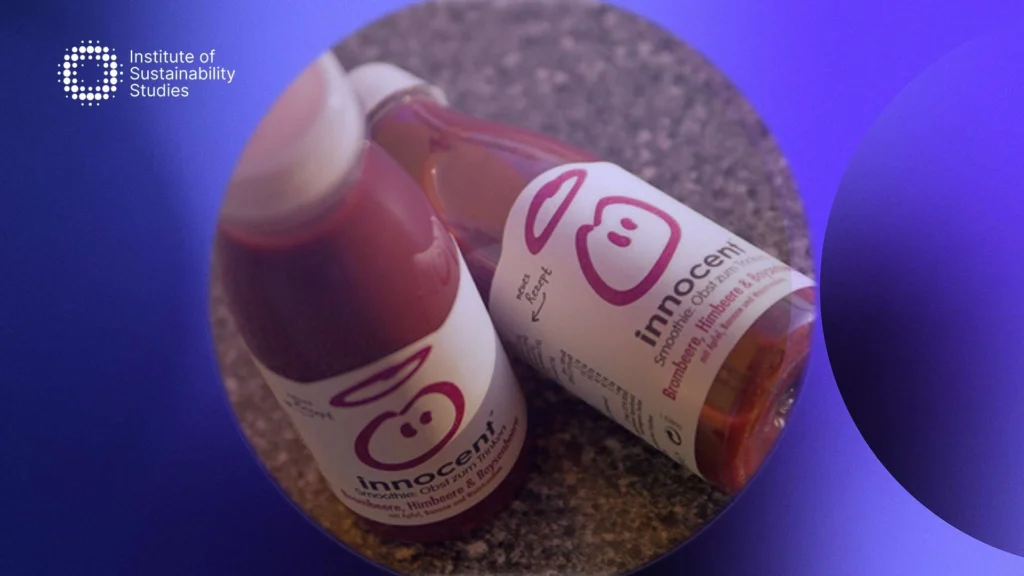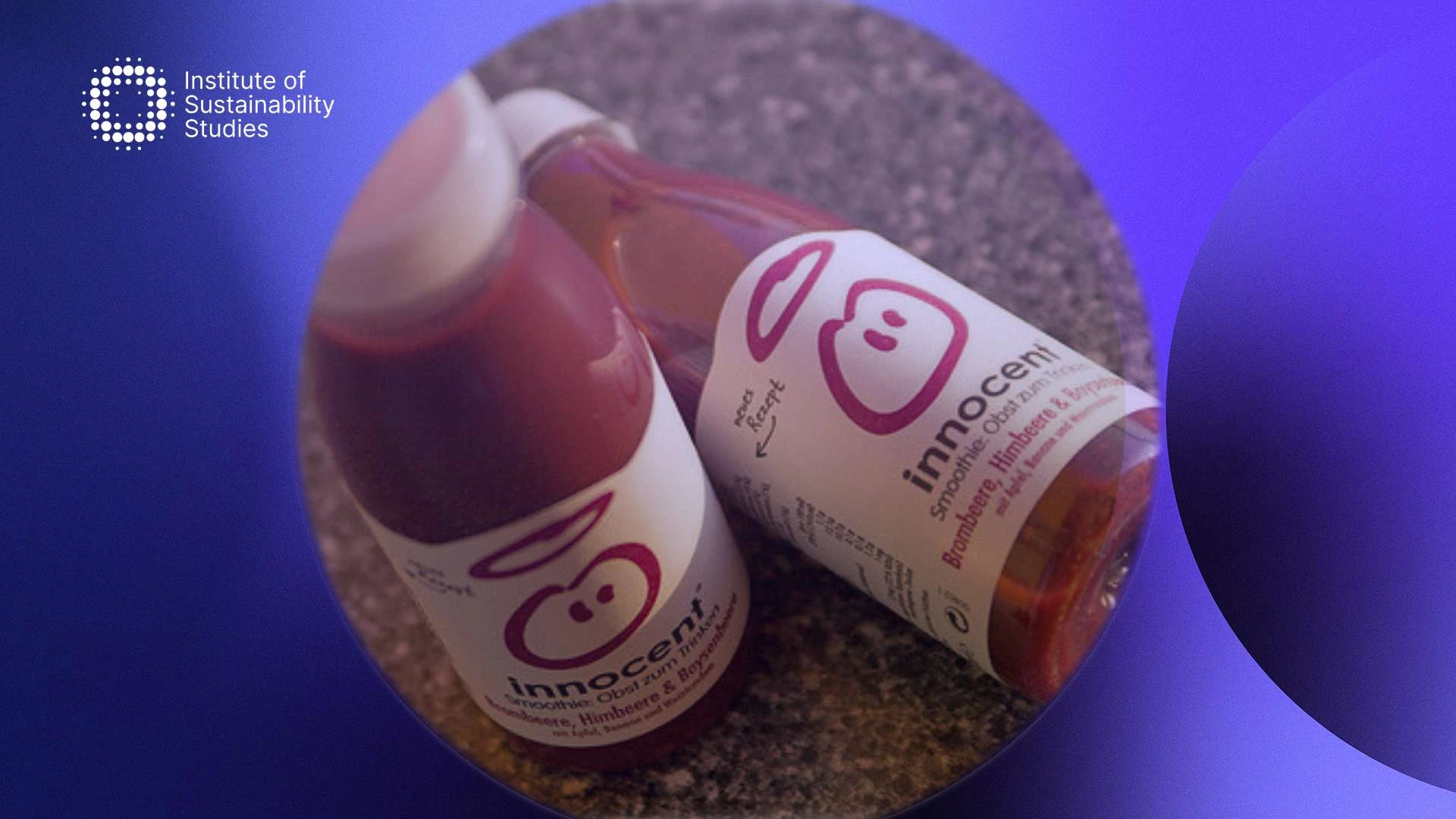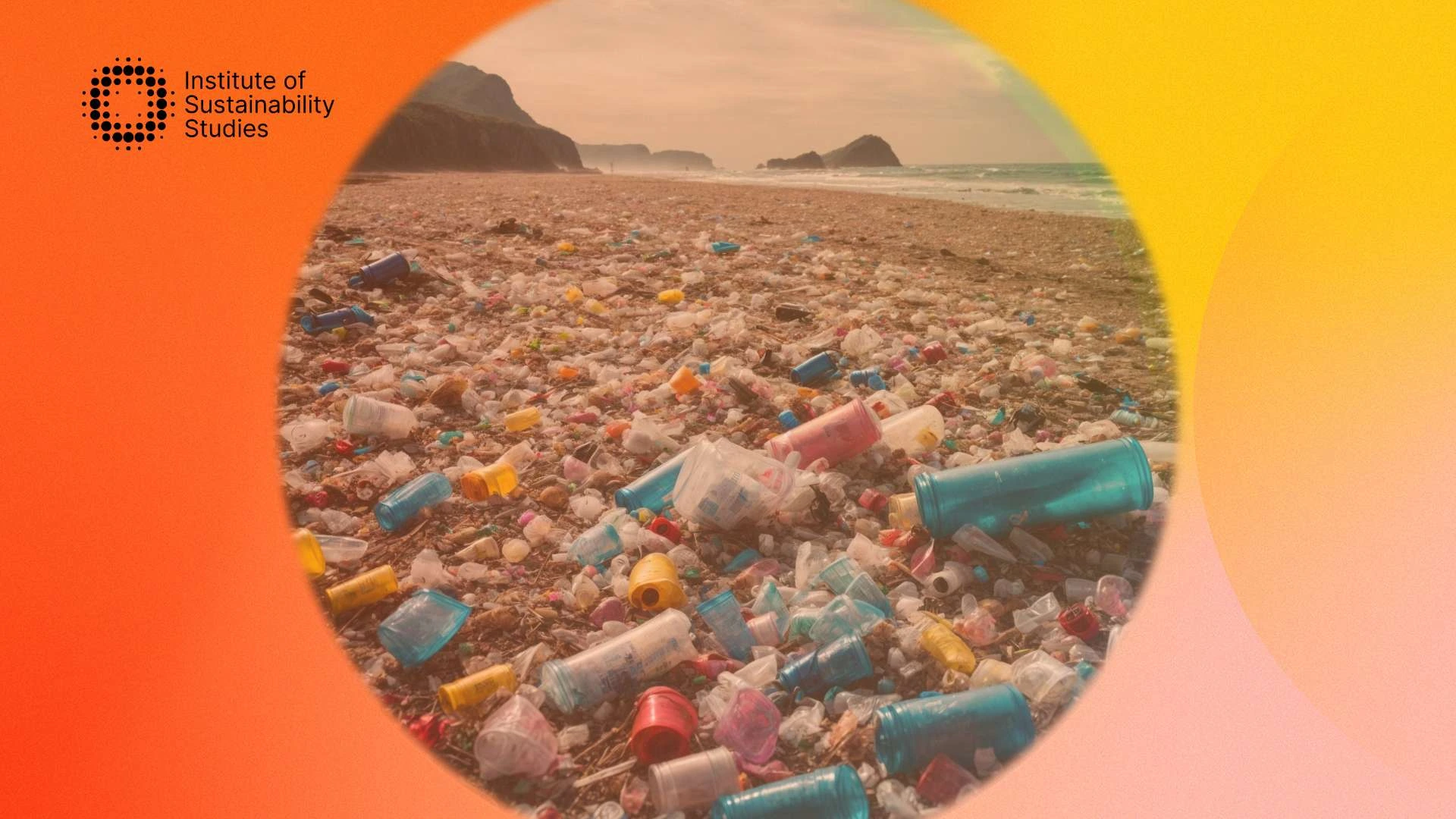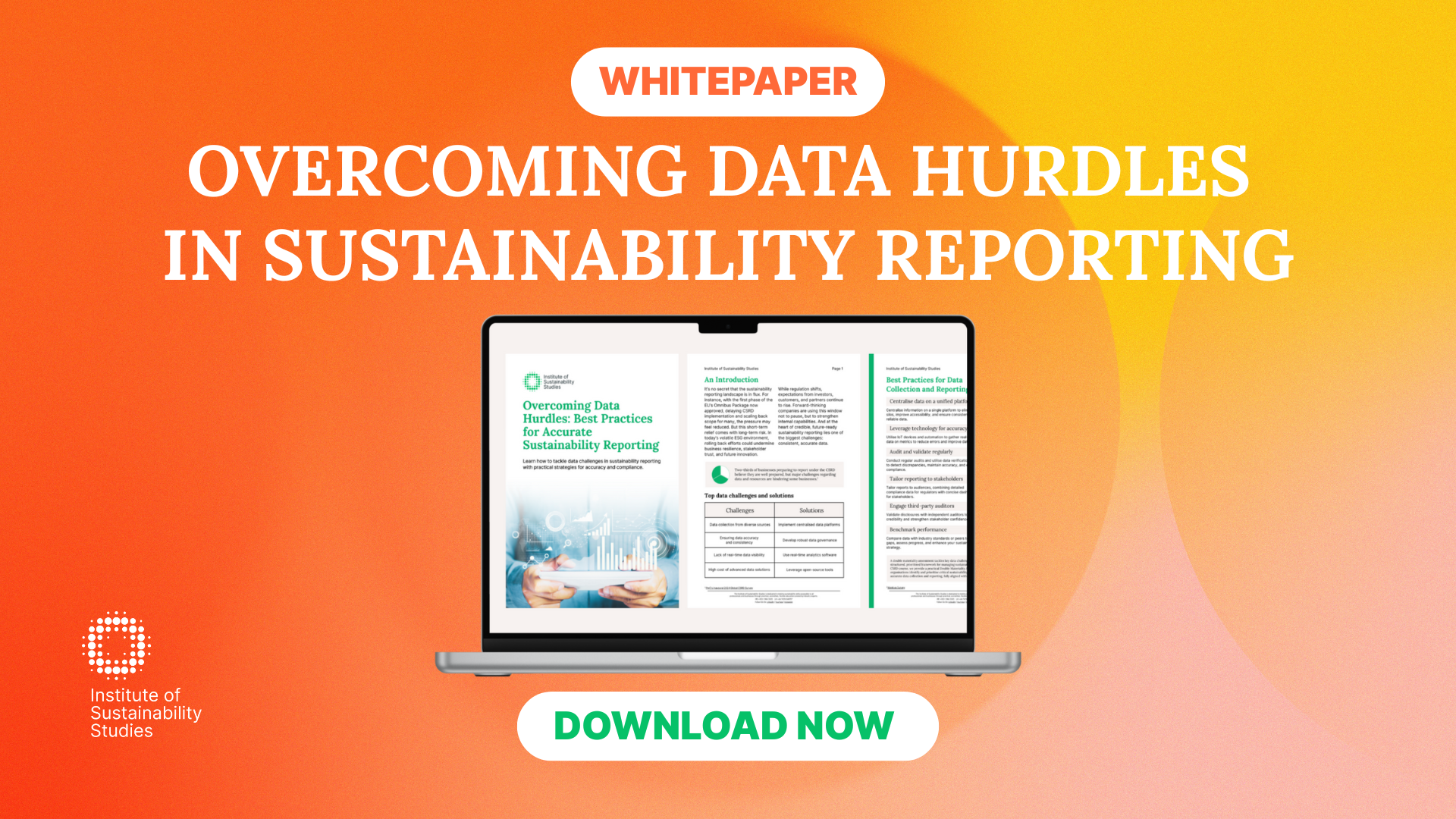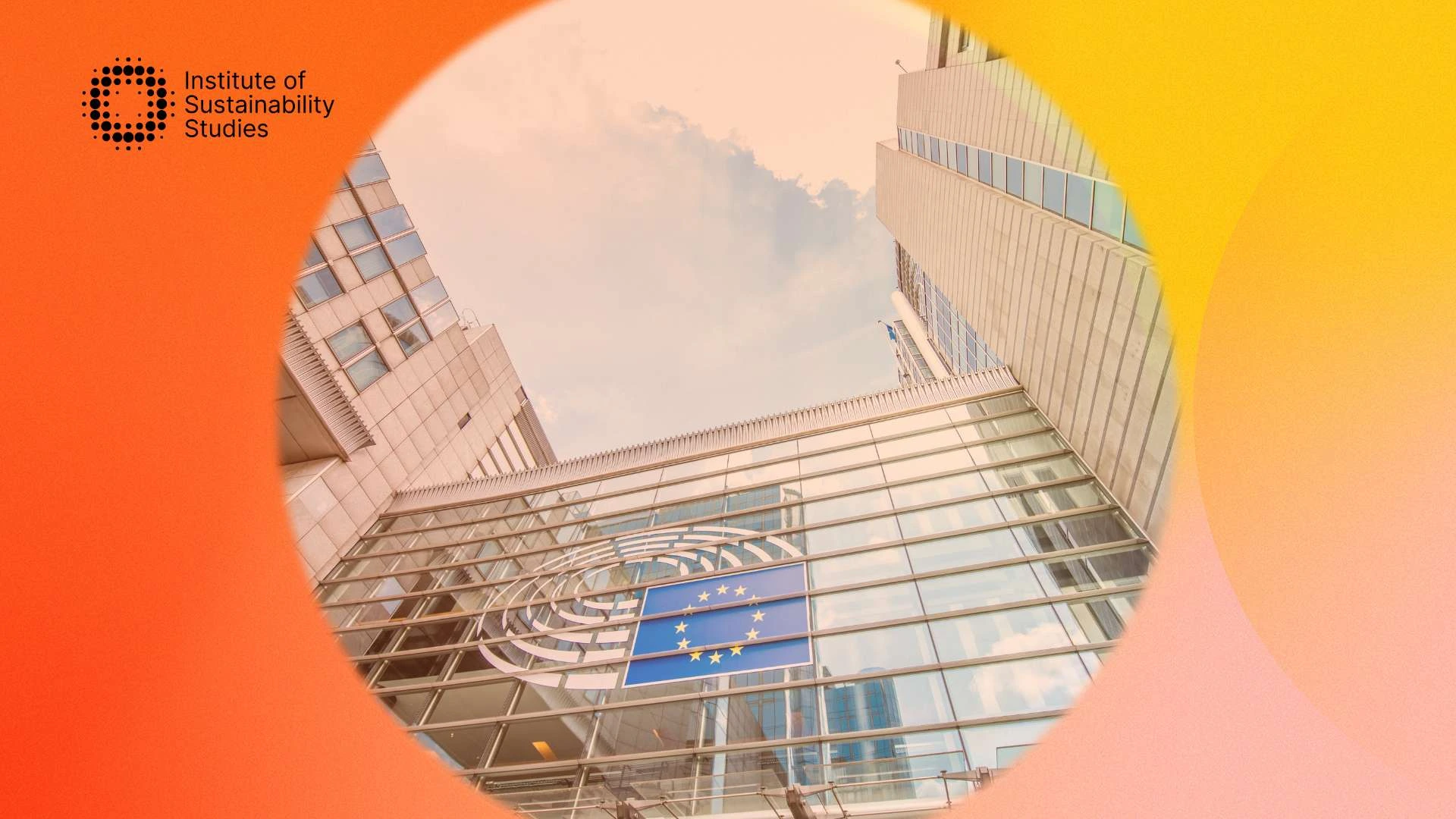Blending purpose, people, and planet into every bottle
When three friends set up a small smoothie stall at a London music festival in 1999, they asked customers to vote (via empty bottles in “yes” and “no” bins) on whether they should quit their day jobs to go into business. By the end of the day, the answer was clear. That moment didn’t just launch a company; it set the tone for a brand built on transparency, playfulness, and doing business differently.
From smoothies to a global B Corp
In the years since, Innocent Drinks has grown from a local start-up to a household name, now selling in over 30 countries. Along the way, the company has kept its purpose close: to make natural, delicious drinks that help people live well and do good for the planet. In 2018, this commitment was formalised when Innocent became a certified B Corporation.
Their B Corp score has steadily increased, rising from 92.5 at certification to over 105 in 2021, placing them among the top-performing billion-pound brands in the movement. For Innocent, this isn’t a badge for marketing; it’s a framework for continuous improvement, guiding decisions from sourcing to manufacturing to packaging.
A strategy built on measurable impact
Innocent’s sustainability strategy is grounded in measurable goals and backed by significant investment. One of the clearest examples is The Blender, their state-of-the-art, all-electric factory in Rotterdam, designed to be carbon neutral by 2028. Running on renewable energy and incorporating innovations in water efficiency, waste management, and process automation, The Blender is as much an R&D hub as it is a production site.
It’s where the company tests and scales the systems that will underpin its goal of net zero by 2040. This focus on measurable progress extends across the business. From emissions reporting in line with the Science Based Targets initiative (SBTi) to publicly disclosing the carbon footprint of each drink, Innocent uses transparency as both a driver and proof of progress.
Sourcing that supports farmers and biodiversity
Innocent’s ingredients come from every corner of the globe, and their approach to sourcing blends quality, ethics, and environmental stewardship. Their Sourcing Stories programme spotlights how suppliers are reducing impact and improving resilience:
- Spanish strawberry growers in Innocent’s supply chain have cut water use by 40 percent through advanced irrigation and soil management techniques.
- Across their apple orchards, the introduction of bee hotels is helping to boost pollinator health and increase crop yields.
- In the coconut-growing regions they source from, farmers benefit from replanting schemes and Fair Trade premiums, providing more stable incomes and stronger community livelihoods.
Through their Farmer Innovation Fund, Innocent invests in regenerative farming projects, such as solar-powered irrigation, cover cropping, and low-till farming, that reduce emissions, enhance soil health, and safeguard long-term supply. These initiatives aren’t charity; they’re strategic. By strengthening supplier resilience, Innocent reduces risk in its value chain and ensures quality ingredients remain available in a changing climate.
Reducing the packaging footprint
Packaging has been a focus for Innocent since the early 2000s, when they introduced bottles with 50 percent recycled plastic content – a first in their category at the time. Today, they are working towards 100 percent renewable or recycled packaging by 2030, while also pushing for systemic change through their role as a founding member of the UK Plastics Pact. Alongside material innovation, they’re exploring deposit return schemes and infrastructure partnerships to ensure that bottles and cartons actually get recycled.
For people, not just profit
Sustainability at Innocent extends to social impact. Through the Innocent Foundation, they donate 10 percent of profits each year to projects tackling hunger, food insecurity, and community resilience. Their internal culture reflects the same ethos, with employee volunteering days, mental health support, and wellbeing programmes forming part of everyday operations.
The benefits of embedding sustainability organisation-wide
Innocent’s approach shows that sustainability is viewed as a long-term value driver. By investing in renewable energy, regenerative agriculture, and circular packaging, they’re reducing costs, building supply chain resilience, and staying ahead of regulatory shifts. Their transparency strengthens brand trust at a time when consumers, retailers, and regulators are increasingly sceptical of vague ESG claims.
However, there are commercial returns from these initiatives too. The Blender’s efficiency gains help manage rising energy prices, sustainable sourcing reduces volatility in raw material supply. Moreover, the brand’s sustainability credentials command a premium in competitive markets. In short, purpose-driven strategies are protecting their bottom line while opening new growth opportunities.
What’s next?
Looking ahead, Innocent aims to achieve carbon neutrality in their own operations by 2025 and net zero across their entire value chain by 2040. They will continue scaling regenerative farming projects, expanding renewable energy use, and driving innovation in sustainable packaging. Their role as a B Corp also positions them to collaborate with other mission-driven brands, sharing knowledge and building momentum for systemic change.
Innocent’s journey from a festival stall to a billion-pound B Corp is proof that doing business with purpose can be a growth strategy, not a compromise. By blending action for people and planet into the core of their business, they’ve created a model that’s credible, commercially sound, and, like their drinks, refreshingly straightforward.
_____
Want to read more business spotlights?
Dedicated to harnessing the power of storytelling to raise awareness, demystify, and drive behavioural change, Bronagh works as the Communications & Content Manager at the Institute of Sustainability Studies. Alongside her work with ISS, Bronagh contributes articles to several news media publications on sustainability and mental health.
- Bronagh Loughlinhttps://instituteofsustainabilitystudies.com/insights/author/bronagh/
- Bronagh Loughlinhttps://instituteofsustainabilitystudies.com/insights/author/bronagh/
- Bronagh Loughlinhttps://instituteofsustainabilitystudies.com/insights/author/bronagh/
- Bronagh Loughlinhttps://instituteofsustainabilitystudies.com/insights/author/bronagh/

